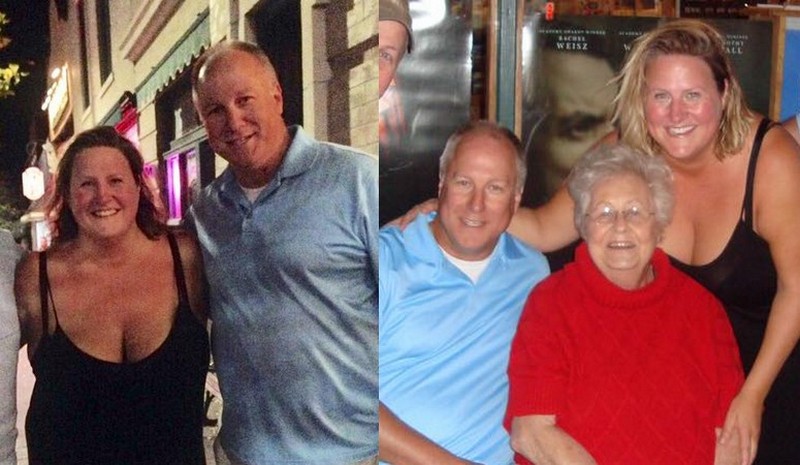


Whether in the name of autofiction, memoir, personal criticism, and autobiography of second-wave feminism or of the 1990s’ debates on public versus private life - writing on the self bears a cultural impact on nearly every type of media. The impulse to reveal, and the consequences of personal disclosure on theory, genre, and literary form, is a well-trodden discourse.
#Bridget everett weight loss series
With such a high currency placed on proximity and closeness in our present moment, it is perhaps unsurprising to see a steady rise of television series that seem to unveil the innermost vulnerabilities and traumas of their subjects.
#Bridget everett weight loss tv
The COVID-19 pandemic has certainly taken TV to task on recreating community and sociality in these highly fragmented times (as Lynne Joyrich argues in “ Watching Television in a Pandemic”). The late television scholar Jane Feuer famously argued that television is inherently implicated in maintaining an ideology of unity - to make those who watch feel “like a family,” and not just to their fellow viewers, but to the people on-screen. At its very origins, when it was installed in the 1950s postwar American home, it was marketed as a tool to unify the family and the nation. Television is a medium of intimacy, par excellence. In so doing, a sense of intimacy, also overwhelmingly absent in the age of the virtual and the socially distant, seems to emerge. The writers of Somebody Somewhere used details from Everett’s past, such as her real-life sister’s death in 2008 and her mother’s struggle with alcohol abuse, as source material to animate the struggles of Sam’s present. In Life & Beth, Schumer incorporates elements from her own life to set the stage for her character’s childhood, including her family’s bankruptcy, her mother’s affair, and her parents’ divorce. The promotional materials for these series and subsequent reviews regarding their reception hinge on the autobiographical nature of their storylines. But to shed light on the present and future, uncertain as it may be, both Life & Beth and Somebody Somewhere turn to the past. As Sam’s dad says of his farm’s flailing crop yields: “It’s hard to get excited about the future when you’re just sort of hanging on to the present.”Īs coming-of-middle-age stories, it is no surprise that these series have received such positive reception: they make the banality and uncertainty of the present palpable in their premise, affect, and aesthetics - at a time when a global pandemic, climate crisis, and financial instability have left most people feeling as though they are spinning their wheels, listless and adrift under the weight of an uncertain future. We learn in the first episode that Sam had returned to Manhattan to care for Holly during the final stages of her illness, though problems within her family in the aftermath of her sister’s death - including financial struggles with their farm, and her mother’s subsequent stay in rehab for a long-term drinking problem - seem to compound Sam’s grief with paralyzing force. In Somebody Somewhere, we find Sam, played by standup comedian and cabaret performer Bridget Everett, already back in her hometown of Manhattan, Kansas, working as a standardized test grader and sleeping on the couch at her sister Holly’s house, who had recently died from cancer. Her experience of homecoming is painful: not only is Beth forced to confront a series of childhood traumas while organizing her deceased mother’s funeral and affairs, but, in doing so, she also must grapple with the unhappiness of her stable, yet aimless, present. In the case of Life & Beth, Amy Schumer stars as the title character, Beth, who must return to her hometown on Long Island when her mother suddenly dies in a car accident. Both stories are about returning home as an adult, painted not as joyful homecomings or cheerful family reunions but as the kind of ambivalent returns that are only ever prompted by loss. These shows have some striking similarities. Recently, however, two television series propelled us into a deeper discussion: Somebody Somewhere on HBO, and Life & Beth on Hulu. We talk about our current likes and dislikes, the series premieres we are most anticipating, and what we are rewatching while we patiently wait for the new seasons of our favorite shows (the answer is almost always The Golden Girls). She does this mostly to humor me, I suspect (I am writing my dissertation about television) and our conversations usually just skim the surface. EVERY WEEK, on one of our phone calls, my sister and I inevitably talk about the TV shows we are watching at the moment.


 0 kommentar(er)
0 kommentar(er)
